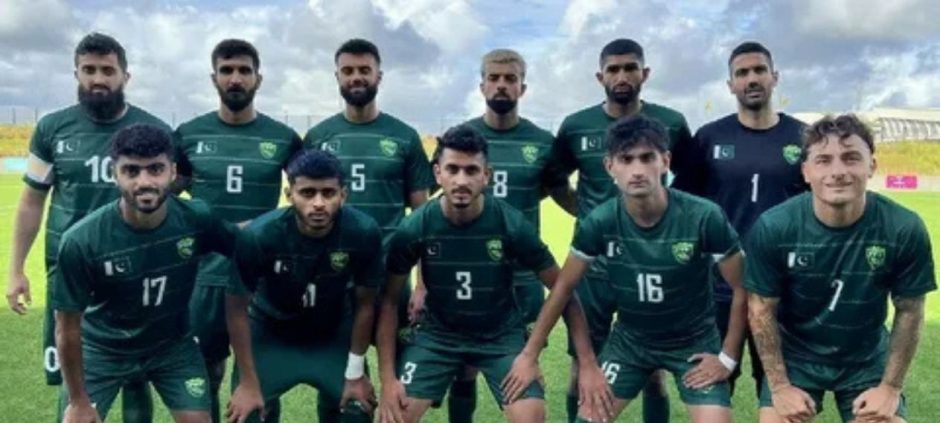Soccer fans in Pakistan are passionate, but when it comes to our Pakistan football team, something just isn’t clicking on the global stage. We all wonder: if the talent is there, why can’t we compete more consistently? The answer lies in a mix of structural challenges, from weak management to underfunding, and serious gaps in training. Let’s break it down.
Mismanagement & Weak Infrastructure
Ever feel like our Pakistan football team is running in circles? A big reason is messy management. Decisions are made on the fly, leaders change faster than a bad Wi-Fi connection, and half-baked projects get abandoned mid-game. Stadiums and training grounds?
Let’s just say some need more TLC than your old sneakers. And youth academies? While a few cities have proper setups, many young players are left kicking the ball against walls, literally and figuratively. Without steady leadership and solid infrastructure, building a team that can actually score on the international stage feels like trying to win FIFA with a controller that keeps disconnecting.
Underfunded Training & Poor Coaching
One of the biggest obstacles is training. Quality coaching is scarce; many young players never get exposed to high-level coaching techniques or consistent training regimes.
Here’s a closer look at the main training and coaching challenges holding the Pakistan football team back:
- The coach-to-player ratio is often too high: local coaches may have 30–50 young players to look after
- Very few certified international-level coaches are available or affordable
- Access to sport science support (nutritionists, physiotherapists) is limited
These issues are compounded by the fact that many grassroots players don’t have access to year-round training because of inadequate funding or infrastructure. This means raw talent often remains just that, raw and unpolished.
Funding Gaps & Budget Constraints
Money matters, and for the Pakistan football team, there’s too little of it in the right places.
The Pakistan Football Federation (PFF) often struggles to secure stable sponsorships or government support. Even when funds are available, their allocation is not always strategic; money may go into short-term projects instead of youth academies.
Players and coaches themselves may not get fair or consistent pay, which hurts motivation and retention. Without predictable and smart financial investment, building world-class football infrastructure or talent pipelines becomes nearly impossible.
Why Pakistani Fans Support Foreign Clubs More Than the Pakistan Football Team
So, why are Pakistani fans more invested in foreign clubs rather than cheering on their own Pakistan football team? Cultural exposure, media coverage, and global football trends all play a big role.
Global Brands Are Too Attractive
When you think of football in Pakistan, most people immediately think of the English Premier League, La Liga, or major European clubs. These clubs are powerful global brands that Pakistani youth follow on social media and via streaming platforms. Their star players, slick marketing, and top-tier production make them hard to ignore.
Here’s a quick look at why international clubs capture Pakistani fans’ hearts more than our own national team:
- Big European clubs are promoted heavily; their merchandise is trendy
- Pakistani fans are more exposed to Euro‑football through social media, YouTube, and licensed broadcasters
- Success and glamour from foreign leagues feel more accessible and aspirational
Media & Coverage Bias
Mainstream media in Pakistan often don’t cover the Pakistan football team in-depth; football news is frequently overshadowed by cricket. This lack of consistent exposure means many Pakistani fans don’t even follow their national team closely:
- TV channels and newspapers prioritise international football or cricket
- Local football matches are not widely televised or broadcast
- Social media and online platforms often highlight European football more than domestic football events
As a result, young fans grow up knowing more about Lionel Messi or Mohamed Salah than Imran Khan (Pakistani footballer) or the national squad.
Cultural & Social Influences
There’s also a social identity factor. Supporting a big European club offers a kind of cosmopolitan identity; it feels modern, international, and cool. Meanwhile, following the national team may not always give that “global fan” feel.
Let’s break down the social and cultural reasons why supporting foreign clubs feels more “cool” for many Pakistanis:
- Pakistanis often associate elite football with European culture
- There’s a perceived prestige in being a “real” football fan when your favourite team is a top European club
- Domestic football culture (local stadiums, children’s leagues) still lacks the same hype and glamor
Pakistan Football Team: Rising Talent You Should Know in 2025
Despite all the challenges, there’s a silver lining: emerging young talent from Pakistan is beginning to shine. If we fix the system, these players could become the backbone of a more competitive national team.
Young Stars With Potential
Let’s talk about a few local youth players making waves. (Some names are rising, so watching closely.)
- A young winger from one of Lahore’s academies, known for his speed and dribbling, he’s been promising in youth leagues and has been scouted by regional clubs
- A central midfielder playing in Karachi’s youth system, praised for vision and passing ability
- Goalkeeping talent coming out of Peshawar, who has shown decent reflexes and leadership in U‑19 tournaments
These players are not just talented, they’re hungry, and they represent the future.
Strengthening Local Academies
To support them, local academies are becoming more organized:
- Some academies offer year-round programs, not just seasonal camps
- Partnerships with foreign clubs and coaches are beginning to form
- Talent hunts and trials, like the Pakistan Street‑Child Football Team trials announced for the Norway Cup 2025, help identify talented youth players.
- Community-based programs are also coming up to provide structured training in remote areas
Why It Matters for Pakistan’s Future
Investing in young talent is not just a feel-good thing; it’s a strategic move:
- These players can eventually elevate Pakistan’s performance in regional competitions
- A strong youth system means fewer “lost” talents and more professional players in top leagues
- It helps build a sustainable national team, one that’s not dependent on short-term fixes but on a growing pipeline of talent
The Road Ahead
Looking ahead, the path for the Pakistan football team is long but not impossible. With serious investment in management, coaching, and youth development, plus a shift in how we, as fans, support local football, we can finally see Pakistan competing at higher levels.
If you love football and believe in Pakistan’s potential, here’s what you can do:
- Follow and support youth academies in your city
- Raise your voice on social media for better coverage of local football
- Encourage grassroots football programs near you
- Stay updated on talent hunts like the Pakistan Street‑Child Football Team Trials for Norway Cup 2025
Together, we can help build a future where the Pakistan football team is not just a dream, it’s a force to be reckoned with.











